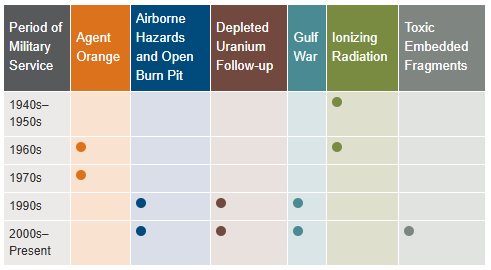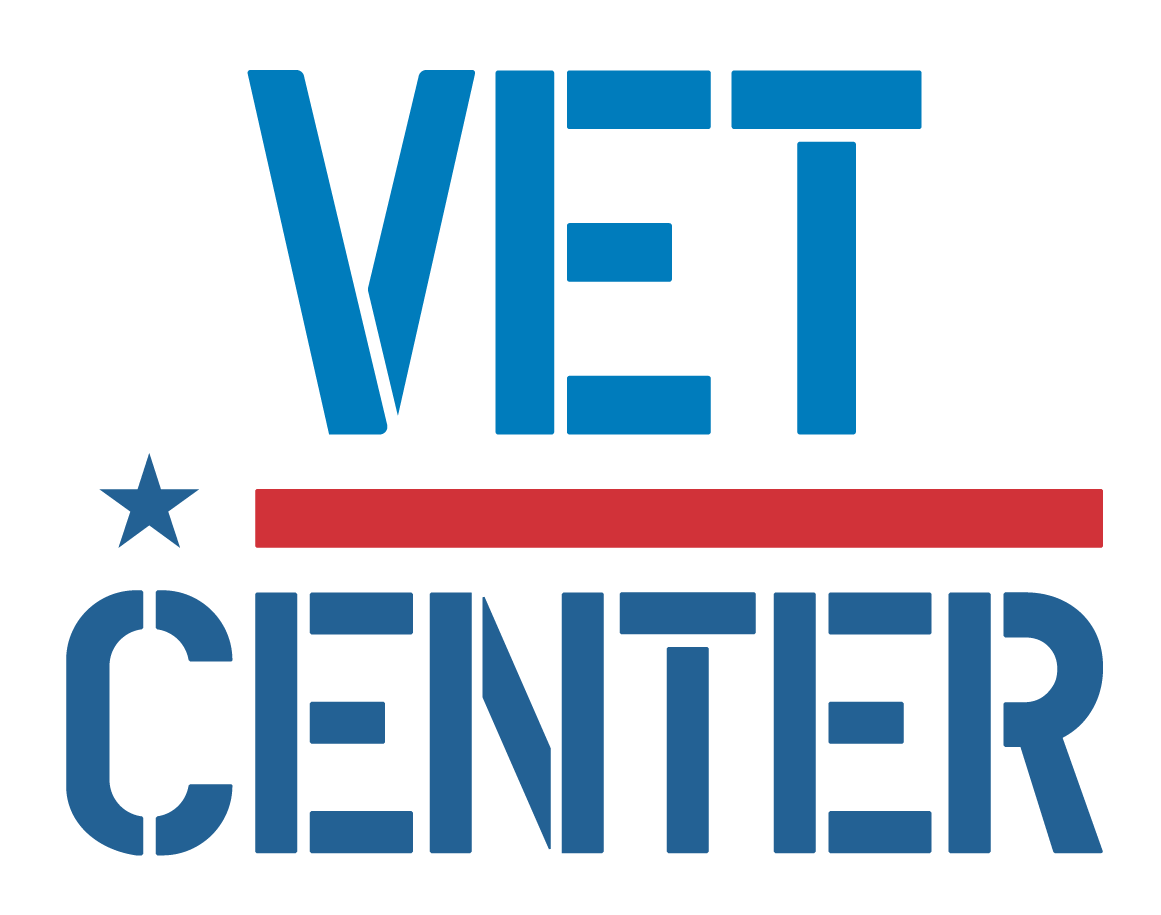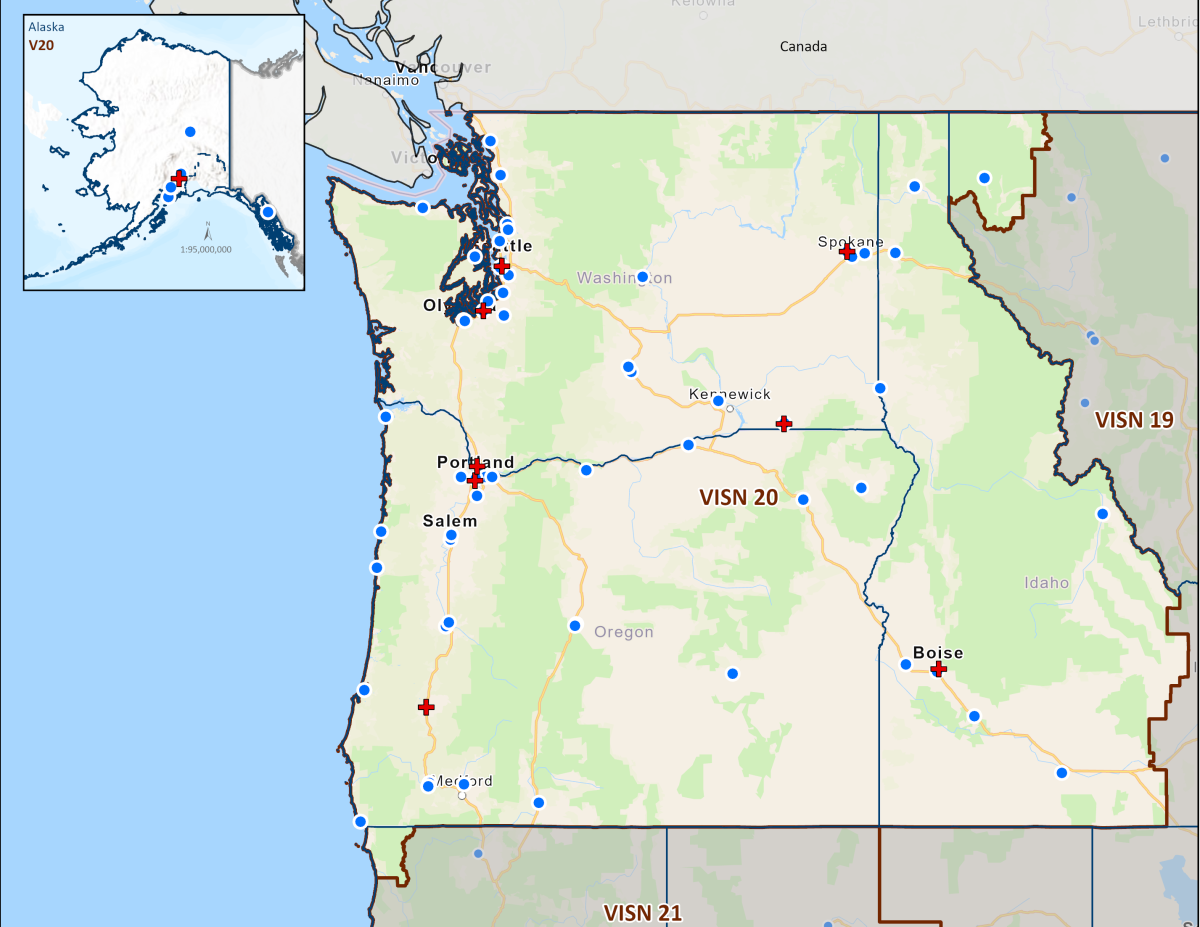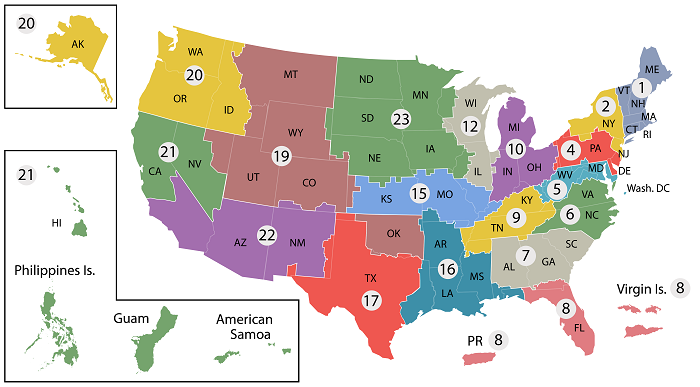MIRECC Presents Archive 2022-2023
MIRECC Presents Archive
May 17, 2023: PTSD at End of Life: Presentations and Approaches to Alleviating Distress
Zachary Sager, MD
Purpose Statement: As with other mental health conditions, PTSD may present differently at the end of life, and may co-exist with other conditions. This presentation will describe various ways that PTSD may present clinically later in life, and it will discuss approaches to alleviating distress for Veterans with late-life PTSD.
Course Learning Objectives:
- Identify various ways in which PTSD may present differently at end of life compared to other points in a Veteran’s life course.
- Describe how PTSD may overlap with other forms of distress at end of life.
- Discuss approaches to addressing PTSD-related distress at end of life.
May 3, 2023: Unique Readjustment Concerns for Newly Separated Women Veterans
Dawne Vogt, PhD
Tara Galovski, PhD
Purpose Statement: The initial period after military discharge is a vulnerable time for veterans and may be particularly challenging for women veterans, who have been found to have worse post-military readjustment outcomes in prior research. This current study drew from a nationally representative sample of participants from the Veterans Metrics Initiative (TVMI) Study to examine the extent to which women veterans experience unique readjustment challenges during the first three years after leaving military service. In this presentation, Dr. Vogt will describe findings of this study, after which Dr. Galovski will discuss clinical implications of study findings for the social support that is available to women veterans during their transition from military service to civilian life.
Course Learning Objectives:
1. Identify areas of health and well-being that reflect unique concern for women Veterans after leaving military service.
2. Describe how women Veterans’ health and well-being changes over the first three years after military service.
3. Describe the role of social support in improving Veterans’ transition experiences.
April 19, 2023: Veterans Justice Programs: Program Overview and Early Intervention and Prevention Strategies
Matt Stimmel, PhD
Katharine Stewart, MSW, LCSW
Purpose Statement: Mental health conditions can contribute to Veteran encounters with the criminal justice system, and there can be multiple challenges for Veterans related to those encounters. This presentation will describe for clinicians some of these challenges, and discuss various resources, such as Veterans Justice Programs, that are available to assist Veterans in navigating the criminal justice system.
Course Learning Objectives:
1. Identify key concepts related to the demographic and clinical profile of Veterans in the criminal justice system.
2. Describe the role of Veterans Justice Programs in linking Veterans to services.
3. Describe innovative practices for facilitating access to services for justice involved Veterans encountering law enforcement and first responders.
April 5, 2023: Neurobiology of Addiction and Recovery
Christopher Blazes, MD
Purpose Statement: Addiction often co-exists with many medical and psychiatric conditions in VA. Addiction treatment and recovery can often be improved by an understanding of the underlying dynamics of addiction. This presentation will describe the neurological pathways of addiction and recovery, and their clinical relevance for designing and implementing successful treatment and long-term recovery.
Course Learning Objectives:
- Describe the neurologic pathways in the reward circuit, both for addiction and recovery.
- Identify and define incentive salience.
- Discuss practical ways to help patients with addiction form functional neurologic pathways through behavioral changes.
March 15, 2023: Combining Outreach on Social Media with Video-Based Training in Suicide Prevention for Veterans’ Family and Friends
Alan Teo, MD
Aaron Call, EdM
Purpose Statement: Suicide prevention continues to be a central priority for VA mental health services. Clinicians play an important role in suicide prevention, but the Veteran’s family and social network also can be very important in optimizing the effectiveness of suicide prevention. This presentation will discuss a novel training for family and friends of Veterans to develop and enhance skills that will allow them to effectively help Veterans who are important in their lives. The important role of social media outreach in suicide prevention also will be discussed.
Course Learning Objectives:
- Describe gatekeeper training, and why Veterans’ family and friends are an appropriate target for gatekeeper training.
- Describe VA S.A.V.E. and the skills taught in it.
- Discuss several strategies to enhance outreach via social media to Veterans at risk for suicide.
February 15, 2023: Treating PTSD in the Context of Cognitive Impairment
Jeffrey Gregg, PhD
Purpose Statement: PTSD can exist throughout the lifespan, and individuals with PTSD are significantly more likely than the general population to be diagnosed with dementia in later life. But evidence-based approaches for assessing and treating PTSD have been designed and tested among individuals without cognitive impairment. So, this presentation will provide practical suggestions for clinicians for adapting assessment and treatment for late life PTSD based on research evidence and clinical experience.
Course Learning Objectives:
1. Describe the relationship between PTSD and cognitive functioning
2. Discuss potential adaptations for evidence-based assessment and treatment of PTSD for older adults with mild cognitive impairment
3. Identify environmental approaches for management of PTSD symptoms among individuals with moderate to severe dementia
February 1, 2023: Diagnosis and Treatment of Functional Movement Disorders
Lee Neilson, MD
Purpose Statement: Movement disorders are encountered across a wide range of clinical settings, often associated with an underlying neurological condition or as an adverse effect of medications. However, functional movement disorders, which are abnormal motor behaviors inconsistent with known neurological disorders, can make accurate diagnosis and effective treatment more complicated. This presentation will describe effective methods for recognizing functional movement disorders and will highlight the essential elements of comprehensive treatment.
Course Learning Objectives:
- Describe the most prominent features of the history and exam that can rule in a diagnosis of a functional movement disorder
- Summarize the pathophysiology of functional movement disorders
- Discuss a multi-modal approach to treatment and identify good prognostic indicators
January 18, 2023: I'm Not an Addict: Patient Experiences with Taper and Discontinuation of Long-Term Opioid Therapy
Travis Lovejoy, PhD
Purpose Statement: Pain co-exists with many health conditions, and pain management for chronic illnesses is one of the most challenging tasks for health care providers. With opioid treatment, that challenge is even greater. This presentation will describe potential outcomes after discontinuation of long-term opioid therapy and help clinicians to sort through some of the challenges for providers and patients, including impacts on the provider-patient relationship.
Course Learning Objectives:
- Quantify pain outcomes following discontinuation of opioid therapy
- Identify potential negative sequalae of universal opioid discontinuation
- Describe patient-provider relationships following discontinuation of opioid therapy
December 7, 2022: Traumatic Brain Injury and Sleep Disorders: Pathophysiology and Clinical Management
Kent Werner M.D., PhD
Purpose Statement: Traumatic Brain Injury (TBI) has been increasingly recognized among those who have served in combat, and it is frequently associated with other conditions such as PTSD and depression. Problems with sleep are encountered in all of these conditions. This presentation will discuss sleep disorders among those who have experienced traumatic brain injury and will summarize for clinicians current evidence-based treatments for sleep disorders among Veterans with TBI.
Course Learning Objectives:
1. Describe the impact of traumatic brain injury (TBI) on sleep among those who have experienced combat
2. Discuss potential mechanisms for sleep disorders in TBI patients
3. List potential therapies for sleep disorders in TBI patients
November 16, 2022: The Role of Family Members in PTSD Treatment
Johanna Thompson-Hollands, PhD
Purpose Statement: The symptoms and behavioral challenges experienced by Veterans with PTSD also influence their social functioning and interpersonal relationships. Research has shown that there are important bidirectional impacts between the social environment and PTSD symptoms. This presentation will focus on family-inclusive treatment and include perspectives from Veterans, family members and VA clinicians. This presentation also will include specific recommendations for optimizing family-inclusive care, as well as outlining a number of brief protocols that have been developed for Veterans and family members.
Course Learning Objectives:
1. Describe the rationale for incorporating family members or other support persons into a Veteran’s PTSD treatment
2. Discuss common goals that veterans and family members have for family-inclusive treatment
3. Identify one or more protocols to support brief family involvement in treatment
November 2, 2022: How to Reduce Veteran Suicides by Helping Veterans with Other Than Honorable Discharges to Obtain VHA Services
Brian Meyer, PhD
Matt Stimmel, PhD
Purpose Statement: Suicide prevention remains one of the top priorities for VA mental health care. This can be attained by clinical or systems-related interventions. One of the ways of intervening at the systems level is to allow Veterans with Other Than Honorable discharges to access VA mental health services. This presentation will illustrate how including this high risk subgroup in suicide prevention strategies can lower the suicide rate among Veterans.
Course Learning Objectives:
1. Describe the link between Other Than Honorable discharges and suicide
2. Identify at least four reasons why Veterans are given Other Than Honorable discharges
3. Identify at least three methods for getting Veterans with Other Than Honorable discharges the services they need
October 19, 2022: Caring for Veterans with Psychosis: an Overview of Evidence-Based Pharmacological and Psychosocial Interventions for Veterans with Schizophrenia
Olaoluwa Okusaga, MD
Jared Bernard, PhD
Schizophrenia is encountered in a wide variety of mental health settings, including VA. Evidence-based assessment and treatment of schizophrenia continues to evolve as basic and clinical science innovations present clinicians with more treatment options. This presentation will focus on the process of deciding among a large number of effective treatment options for schizophrenia, and will highlight the integration of pharmacological and psychosocial treatment methods.
Course Learning Objectives:
1. Explain the importance of ruling out secondary psychosis during the initial evaluation of a Veteran presenting with psychotic symptoms
2. Describe how to decide on specific antipsychotic medications and other somatic treatments for Veterans diagnosed with schizophrenia
3. Discuss the concept of recovery and how its principles are utilized in evidence-based psychosocial interventions
October 5, 2022: Moral Injury: An Overview of Conceptual, Definitional, Assessment, and Treatment Issues
Brett Litz, PhD
The idea that people can be lastingly harmed by their own transgressive behavior and can suffer because of others’ moral failures is as old as humanity, yet these concepts have only recently been considered as clinically relevant social, biological, spiritual, and psychological problems. The term that is used to describe these transgressive harms and the outcome of those experiences is moral injury. This presentation will enhance clinicians and researchers knowledge about how to define, assess, and treat moral injury.
Course Learning Objectives:
1. Define moral injury
2. Discuss how to assess moral injury using a moral injury assessment instrument, and distinguish moral injury from moral distress and PTSD
3. Describe the phenomenology, clinical needs, and methods for helping those suffering from moral injury.
Sign up for email updates or access your subscriber preferences: https://public.govdelivery.com/accounts/USVHAVISN20/subscriber/new.
Use of these Materials and Finding VA Health Care
Please note that the health care information provided in these materials is for educational purposes only. It does not replace the role of a medical practitioner for advice on care and treatment. If you are looking for professional medical care, find your local VA healthcare center by using the VA Facilities Locator & Directory. This page may contain links that will take you outside of the Department of Veterans Affairs website. VA does not endorse and is not responsible for the content of the linked websites.
VA Web Disclaimers
Disclaimer of Endorsement: Reference herein to any specific commercial products, process, or service by trade name, trademark, manufacturer, or otherwise, does not necessarily constitute or imply its endorsement, recommendation, or favoring by the United States Government. The views and opinions of authors expressed herein do not necessarily state or reflect those of the United States Government, and shall not be used for advertising or product endorsement purposes.
Disclaimer of Hyperlinks: The appearance of external hyperlinks does not constitute endorsement by the Department of Veterans Affairs of the linked websites, or the information, products or services contained therein. For other than authorized VA activities, the Department does not exercise any editorial control over the information you may find at these locations. All links are provided with the intent of meeting the mission of the Department and the VA website. Please let us know about existing external links which you believe are inappropriate and about specific additional external links which you believe ought to be included.
Disclaimer of Liability: With respect to documents available from this server, neither the United States Government nor any of its employees, makes any warranty, express or implied, including the warranties of merchantability and fitness for a particular purpose, or assumes any legal liability or responsibility for the accuracy, completeness, or usefulness of any information, apparatus, product, or process disclosed, or represents that its use would not infringe privately owned rights.
Reference from this web page or from any of the information services sponsored by the VA to any non-governmental entity, product, service or information does not constitute an endorsement or recommendation by the VA or any of its employees. We are not responsible for the content of any "off-site" web pages referenced from this server.
Disclaimer: The sharing of any non-VA information does not constitute an endorsement of products or services on the part of the VA.
![]()
VA Regional Offices
 The Veterans Benefits Administration (VBA) helps service members transition out of military service, and assists with Veterans with education, home loans, life insurance and much more. Service members, Veterans, their families, and Survivors are invited to request information on VA Benefits including disability compensation, pension, fiduciary, education, Veteran Readiness and Employment (VR&E), Home Loans, and Insurance. In addition to information on VA Benefits Veterans may initiate an intent to file and request assistance with filing compensation and pension claims. Visit regional office websites to learn about the services the regional office provides, directions to the facility, hours of operation, and the leadership team that serves the regional office.
The Veterans Benefits Administration (VBA) helps service members transition out of military service, and assists with Veterans with education, home loans, life insurance and much more. Service members, Veterans, their families, and Survivors are invited to request information on VA Benefits including disability compensation, pension, fiduciary, education, Veteran Readiness and Employment (VR&E), Home Loans, and Insurance. In addition to information on VA Benefits Veterans may initiate an intent to file and request assistance with filing compensation and pension claims. Visit regional office websites to learn about the services the regional office provides, directions to the facility, hours of operation, and the leadership team that serves the regional office.
Find out if you can get VA health care as a Veteran
The following four categories of Veterans are not required to enroll but are urged to do so to permit better planning of health resources:
- Veterans with a service-connected (SC) disability rated at 50% or more.
- Veterans seeking care for a disability the military determined was incurred or aggravated in the line of duty, but which VA has not yet rated, within 12 months of discharge.
- Veterans seeking care for a SC disability only or under a special treatment authority.
- Veterans seeking health registry examinations. VA’s health registry evaluation is a free, voluntary medical assessment for Veterans who may have been exposed to certain environmental hazards during military service. The evaluations alert Veterans to possible long-term health problems that may be related to exposure to specific environmental hazards during their military service. VA has established several health registries to track and monitor the health of specific groups of Veterans. You may be eligible to participate in one or more of these health registries: Agent Orange Registry, Airborne Hazards and Open Burn Pit Registry, Gulf War Registry (includes Operations Iraqi Freedom and New Dawn), Ionizing Radiation Registry, Depleted Uranium Follow-Up Program, and Toxic Embedded Fragment Surveillance Center. Use the chart below to help determine your eligibility.

Find out how to apply for VA health care benefits as a Veteran or service member. For other mental health services, contact a VA medical center for information on eligibility and treatment options.
Community Care (Mission Act)
The MISSION Act became law in 2018, bringing the VA’s previous Veterans Choice Program to an end and establishing the Community Care Program. VA provides health care for Veterans from providers in your local community outside of VA. Veterans may be eligible to receive care from a community provider when VA cannot provide the care needed. This care is provided on behalf of and paid for by VA. Community care is also available to Veterans based on certain conditions and eligibility requirements, and in consideration of a Veteran’s specific needs and circumstances. VA offers urgent care services to eligible Veterans at in-network urgent care clinics to treat minor injuries and illnesses that are not life-threatening, such as colds, strep throat, sprained muscles, and skin and ear infections. Community care must be first authorized by VA before a Veteran can receive care from a community provider.
Vet Centers in VISN 20
 Vet Centers in VISN 20 are community-based counseling centers that provide a wide range of social and psychological services, including professional readjustment counseling to eligible Veterans, active-duty Army, Navy, Marine Corp, Air Force, Space Force, and Coast Guard service members, including National Guard and Reserve components, and their families. 1-877-927-8387 is an around the clock confidential call center where combat Veterans and their families can call to talk about their military experience or any other issue they are facing in their readjustment to civilian life. The staff is comprised of combat Veterans from several eras as well as families members of combat Veterans. This benefit is prepaid through the Veteran’s military service.
Vet Centers in VISN 20 are community-based counseling centers that provide a wide range of social and psychological services, including professional readjustment counseling to eligible Veterans, active-duty Army, Navy, Marine Corp, Air Force, Space Force, and Coast Guard service members, including National Guard and Reserve components, and their families. 1-877-927-8387 is an around the clock confidential call center where combat Veterans and their families can call to talk about their military experience or any other issue they are facing in their readjustment to civilian life. The staff is comprised of combat Veterans from several eras as well as families members of combat Veterans. This benefit is prepaid through the Veteran’s military service.
Alaska
| Anchorage Vet Center (Anchorage, AK) | Fairbanks Vet Center (Fairbanks, AK) |
| Kenai Vet Center Outstation (Soldotna, AK) | Wasilla Vet Center (Wasilla, AK) |
Idaho
| Boise Vet Center (Boise, ID) | East Idaho Vet Center (Idaho Falls, ID) |
Oregon
| Central Oregon Vet Center (Bend, OR) | Eugene Vet Center (Eugene, OR) |
| Grants Pass Vet Center (Grants Pass, OR) | Portland, OR Vet Center (Portland, OR) |
| Salem Vet Center (Salem, OR) |
Washington
Plan your trip to VA
 In 1946, Veterans Canteen Service (VCS) was established by law to provide comfort and well-being to America’s Veterans. With our many retail stores, cafés and coffee shops across the country, we serve those who have served our country. We are a self-sustaining entity providing merchandise and services to Veterans enrolled in VA’s healthcare system, their families, caregivers, VA employees, volunteers and visitors. We are honored to give back to the VA community through many programs established for the health and well-being of our nation’s heroes. Revenues generated from VCS are used to support a variety of programs, such as VA’s Rehabilitation Games, Fisher Houses, Poly-Trauma Centers for OIF/OEF/OND Veterans, disaster relief efforts, Substance Abuse Cessation, VA’s Homelessness initiatives, Women Veterans, Veteran Suicide Prevention and other activities.
In 1946, Veterans Canteen Service (VCS) was established by law to provide comfort and well-being to America’s Veterans. With our many retail stores, cafés and coffee shops across the country, we serve those who have served our country. We are a self-sustaining entity providing merchandise and services to Veterans enrolled in VA’s healthcare system, their families, caregivers, VA employees, volunteers and visitors. We are honored to give back to the VA community through many programs established for the health and well-being of our nation’s heroes. Revenues generated from VCS are used to support a variety of programs, such as VA’s Rehabilitation Games, Fisher Houses, Poly-Trauma Centers for OIF/OEF/OND Veterans, disaster relief efforts, Substance Abuse Cessation, VA’s Homelessness initiatives, Women Veterans, Veteran Suicide Prevention and other activities.
VCS operates over 200 Patriot Stores in Veterans Administration (VA) Medical Centers nationwide. Many of our stores have been recently updated and expanded to provide our customers with a modern, clean and comfortable shopping experience. Our stores welcome our customers with wider aisles, wood-like floors, enhanced lighting and directional signage. PatriotStores have expanded hours of operation to provide service for customers on weekends at most locations.
The Patriot Cafe is the best place in the VA Medical Center to enjoy delicious, freshly prepared breakfast or lunch served hot or cold each weekday. Providing Veterans, their families, VA employees, volunteers and visitors a place to relax and enjoy a meal or take-out for their convenience. With a wide variety of food from traditional comfort food, specialized menu selections and a large assortment of healthy choices; there is something for everyone's taste buds.
Hospital Service Directory
To find out whether there is a van near you use the Disabled American Veterans (DAV) Hospital Service Coordinator Directory to contact your nearest HSC for information or assistance. Please remember that the DAV Transportation Network is staffed by volunteers; therefore, it is unable to cover every community. The vans are driven by volunteers, and the rides coordinated by more than 133 Hospital Service Coordinators around the country. Our nation’s heroes travel around the globe to protect our freedoms—it’s only right that we return their dedication. Volunteering to drive a Vet ensures that even those living remotely from VA hospitals can make their appointments and never go without the treatment they need. Learn more about the DAV transportation network through the VISN 20 NewsFlash Resources section.
 Today's VHA - the largest of the three administrations that comprise the VA - continues to meet Veterans' changing medical, surgical, and quality-of-life needs. VHA is the largest integrated health care system in the United States, providing care at 1,321 health care facilities, including 172 VA Medical Centers and 1,138 outpatient sites of care of varying complexity (VHA outpatient clinics) to over 9 million Veterans enrolled in the VA health care program. There are 18 Veterans Integrated Service Networks (VISNs) in VHA operating as regional systems of care to better meet local health care needs and provides greater access to care. In the Pacific Northwest, VISN 20 serves Veterans in Alaska, Oregon, Washington, most of Idaho, and one county each in California and Montana. Spanning 23% of the US land mass, VISN 20 is the largest geographic region of VA. Operating across three time zones over 817,417 square miles, VISN 20 is home to 273 federally recognized American Indian and Alaskan Native tribes. According to DoD, American Indians and Alaska Natives have one of the highest representations in the United States Armed Forces. VA consults with American Indian and Alaska Native tribal governments to develop partnerships that enhance access to services and benefits by Veterans and their families. VA is committed to ensuring that Native American Veterans and their families are able to utilize all benefits and services they are entitled to receive. As of the end of FY2024, 39% of VISN 20 enrollees resided in rural or highly rural areas.
Today's VHA - the largest of the three administrations that comprise the VA - continues to meet Veterans' changing medical, surgical, and quality-of-life needs. VHA is the largest integrated health care system in the United States, providing care at 1,321 health care facilities, including 172 VA Medical Centers and 1,138 outpatient sites of care of varying complexity (VHA outpatient clinics) to over 9 million Veterans enrolled in the VA health care program. There are 18 Veterans Integrated Service Networks (VISNs) in VHA operating as regional systems of care to better meet local health care needs and provides greater access to care. In the Pacific Northwest, VISN 20 serves Veterans in Alaska, Oregon, Washington, most of Idaho, and one county each in California and Montana. Spanning 23% of the US land mass, VISN 20 is the largest geographic region of VA. Operating across three time zones over 817,417 square miles, VISN 20 is home to 273 federally recognized American Indian and Alaskan Native tribes. According to DoD, American Indians and Alaska Natives have one of the highest representations in the United States Armed Forces. VA consults with American Indian and Alaska Native tribal governments to develop partnerships that enhance access to services and benefits by Veterans and their families. VA is committed to ensuring that Native American Veterans and their families are able to utilize all benefits and services they are entitled to receive. As of the end of FY2024, 39% of VISN 20 enrollees resided in rural or highly rural areas.
VA Medical Centers within VISN 20
Colonel Mary Louise Rasmuson Campus of the Alaska VA Healthcare System, Anchorage, Alaska
VA Boise Medical Center of the Boise VA Healthcare System, Boise, Idaho
VA Portland Medical Center of the Portland VA Healthcare System, Portland, Oregon
VA Roseburg Medical Center of the Roseburg VA Healthcare System, Roseburg, Oregon
VA White City Medical Center of the VA Southern Oregon Healthcare System, White City, Oregon
VA Seattle Medical Center of the VA Puget Sound Healthcare System, Seattle, Washington
Mann-Grandstaff Department of Veterans Affairs Medical Center, Spokane, Washington
Jonathan M. Wainwright Memorial VA Medical Center of the VA Walla Walla Healthcare System, Walla Walla, Washington
VA Puget Sound Health Care System (VAPSHCS) serves Veterans from a five-state area in the Pacific Northwest with two main divisions: American Lake VA Medical Center and Seattle VA Medical Center. Veterans Medical Centers are also located in Spokane, Vancouver, and Walla Walla. VA Outpatient Clinics and Vet Centers are located in Bellingham, Bellevue, Bremerton, Edmunds, Everett, Federal Way, Lacey, Mount Vernon, Olympia, Port Angeles, Puyallup, Richland, Renton, Silverdale, Seattle, Spokane, Union Gap, Vancouver, Walla Walla, Wenatchee, and Yakima.
VA Portland Health Care System (VAPORHCS) serves Veterans in Oregon and Southwest Washington with two main divisions: Portland VA Medical Center and Vancouver VA Medical Center. Veterans Medical Centers are also located in Roseburg, White City, and Vancouver, Washington. VA Outpatient Clinics and Vet Centers are located in Astoria, Bend, Boardman, Brookings, Eugene, Fairview, Grants Pass, Hines, Hillsboro, Klamath Falls, LaGrande, Lincoln City, Newport, Portland, Salem, The Dalles, and West Linn.

- VISN 1: VA New England Healthcare System
- VISN 2: New York/New Jersey VA Health Care Network
- VISN 4: VA Healthcare - VISN 4
- VISN 5: VA Capitol Health Care Network
- VISN 6: VA Mid-Atlantic Health Care Network
- VISN 7: VA Southeast Network
- VISN 8: VA Sunshine Healthcare Network
- VISN 9: VA MidSouth Healthcare Network
- VISN 10: VA Healthcare System
- VISN 12: VA Great Lakes Health Care System
- VISN 15: VA Heartland Network
- VISN 16: South Central VA Health Care Network
- VISN 17: VA Heart of Texas Health Care Network
- VISN 19: Rocky Mountain Network
- VISN 20: Northwest Network
- VISN 21: Sierra Pacific Network
- VISN 22: Desert Pacific Healthcare Network
- VISN 23: VA Midwest Health Care Network



















